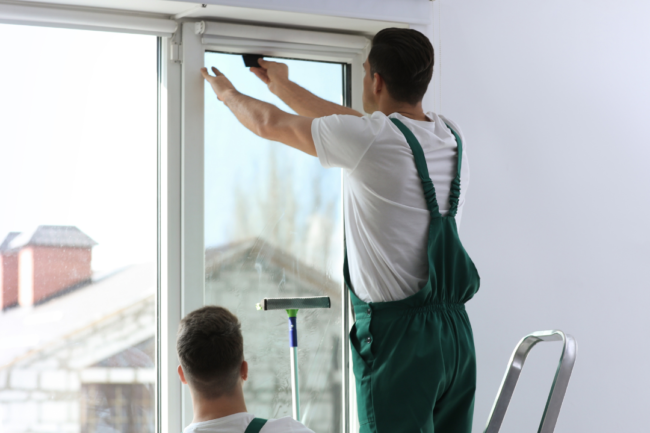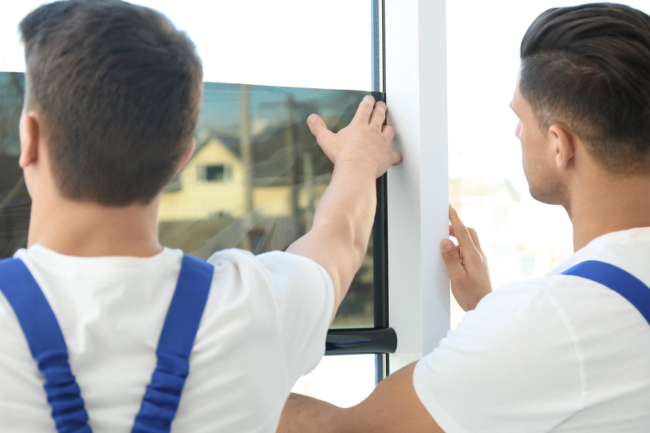In today’s world of environmental consciousness and rising energy costs, maximizing energy efficiency has become a top priority for many homeowners and businesses alike. One often overlooked but highly effective method to achieve this goal is through professional window tinting. In this blog post, we will explore the benefits of window tinting in enhancing energy efficiency, from reducing heat transfer to minimizing the need for excessive air conditioning. By harnessing the power of window tinting, individuals can significantly lower their energy bills while also reducing their carbon footprint. Additionally, we’ll delve into the various types of window tinting options available and how they can cater to specific needs and preferences. Whether you’re looking to enhance the comfort of your living space or improve the sustainability of your commercial building, professional window tinting offers a practical and cost-effective solution to maximize energy efficiency. Join us as we uncover the secrets to unlocking energy savings through the simple yet impactful act of tinting your windows.
The Economic Benefits of Professional Window Tinting for Energy Efficiency
In an era where sustainability and cost-efficiency go hand in hand, the quest for practical solutions to reduce energy consumption in buildings is paramount. Amidst various strategies available, professional window tinting emerges as a remarkably effective and economically viable option. Let’s delve deeper into understanding how investing in window tinting can yield substantial economic benefits over time.
 Initial Investment, Long-term Savings: It’s no secret that the initial cost of professional window tinting might give pause to some property owners. However, it’s crucial to view this as a long-term investment rather than an immediate expense. The upfront expenditure on high-quality window tinting is quickly offset by the significant savings it generates in energy bills over the years.
Initial Investment, Long-term Savings: It’s no secret that the initial cost of professional window tinting might give pause to some property owners. However, it’s crucial to view this as a long-term investment rather than an immediate expense. The upfront expenditure on high-quality window tinting is quickly offset by the significant savings it generates in energy bills over the years.- Reduced Energy Consumption: One of the primary economic benefits of window tinting is its ability to drastically reduce energy consumption. By minimizing solar heat gain during hot months and retaining heat during colder seasons, tinted windows reduce the strain on heating, ventilation, and air conditioning (HVAC) systems. As a result, properties experience lower energy usage, leading to considerable cost savings on utility bills.
- Extended Lifespan of HVAC Systems: Window tinting not only lowers energy bills but also extends the lifespan of HVAC systems. By reducing the frequency and intensity of HVAC usage, tinted windows alleviate wear and tear on these systems, consequently decreasing maintenance and repair costs. Property owners can enjoy prolonged durability and efficiency from their HVAC investments, translating into substantial long-term savings.
- Preservation of Interior Assets: Beyond energy efficiency, window tinting offers economic benefits by preserving interior assets. Tinted windows block harmful UV rays that cause fading and degradation of furniture, flooring, and artwork. By shielding these assets from sun damage, property owners avoid the need for premature replacements or costly restoration efforts, thus conserving resources and reducing expenses.
- Increased Property Value: The installation of professional window tinting can enhance the overall value of a property. Energy-efficient features such as tinted windows are increasingly sought after in the real estate market due to their cost-saving benefits and environmental appeal. Properties equipped with window tinting often command higher resale values and attract discerning buyers who prioritize sustainability and efficiency.
Environmental Impact of Window Tinting for Energy Efficiency
In recent years, as concerns over climate change and environmental sustainability have intensified, the quest for energy-efficient solutions has become paramount. One often-overlooked yet highly effective strategy for reducing energy consumption and mitigating environmental impact is professional window tinting. While the primary purpose of window tinting may be to enhance privacy, reduce glare, and improve aesthetics, its benefits extend far beyond these immediate concerns. In this article, we delve into the environmental impact of window tinting for energy efficiency, exploring how this simple retrofit can contribute to a greener, more sustainable future.
 Energy Conservation
Energy Conservation
One of the most significant environmental benefits of window tinting is its ability to conserve energy. By applying a thin, virtually invisible film to windows, tinting reduces the amount of solar heat entering a building, thereby reducing the need for excessive air conditioning during hot summer months. Similarly, in colder climates, window tinting helps retain interior heat, reducing reliance on heating systems. By minimizing the energy required for climate control, window tinting plays a crucial role in reducing greenhouse gas emissions associated with energy production.
Carbon Footprint Reduction
The reduction in energy consumption facilitated by window tinting directly translates into a smaller carbon footprint for buildings and homes. According to studies, buildings account for a significant portion of global energy consumption and carbon emissions. By implementing energy-efficient measures such as window tinting, we can significantly lower the carbon intensity of buildings, thus contributing to global efforts to combat climate change.
Preservation of Natural Resources
Reducing energy consumption through window tinting also has indirect benefits for natural resource preservation. Many energy sources, such as fossil fuels and nuclear power, have significant environmental impacts associated with their extraction, production, and disposal. By lowering energy demand, window tinting helps alleviate the pressure on these finite resources, promoting conservation and sustainability.
Mitigation of Urban Heat Island Effect
In urban areas, the proliferation of buildings and pavement contributes to the phenomenon known as the urban heat island effect, wherein cities experience higher temperatures than surrounding rural areas. Window tinting can help mitigate this effect by reducing the heat absorbed and emitted by buildings, thus helping to lower ambient.
Protection of Wildlife and Ecosystems
Climate change and habitat destruction pose significant threats to wildlife and ecosystems worldwide. By reducing energy consumption and greenhouse gas emissions, window tinting contributes to efforts to mitigate these threats, helping to preserve biodiversity and protect vulnerable species and habitats.
Conclusion
Ceramic Garage Inc in Modesto, CA, we firmly believe in the transformative power of professional window tinting to maximize energy efficiency. With our expertise and commitment to quality service, we provide homeowners and businesses with innovative solutions that not only enhance privacy and aesthetics but also significantly reduce energy consumption. By harnessing the benefits of window tinting, we contribute to a more sustainable future while offering tangible benefits to our valued customers. Contact us at (209) 780-7170 to explore how we can tailor our services to meet your specific needs and elevate your property’s energy efficiency.


 Initial Investment, Long-term Savings
Initial Investment, Long-term Savings Energy Conservation
Energy Conservation
